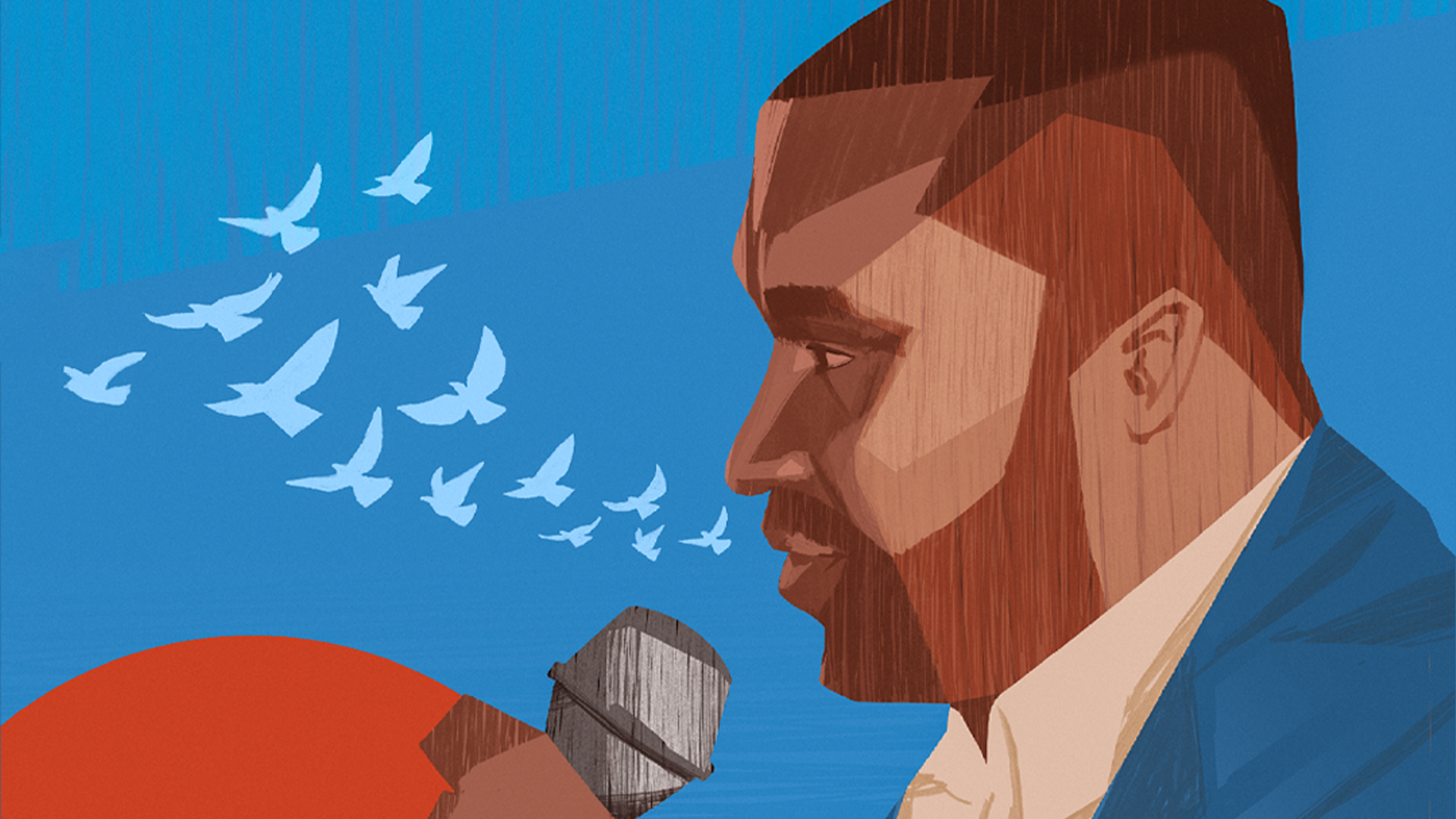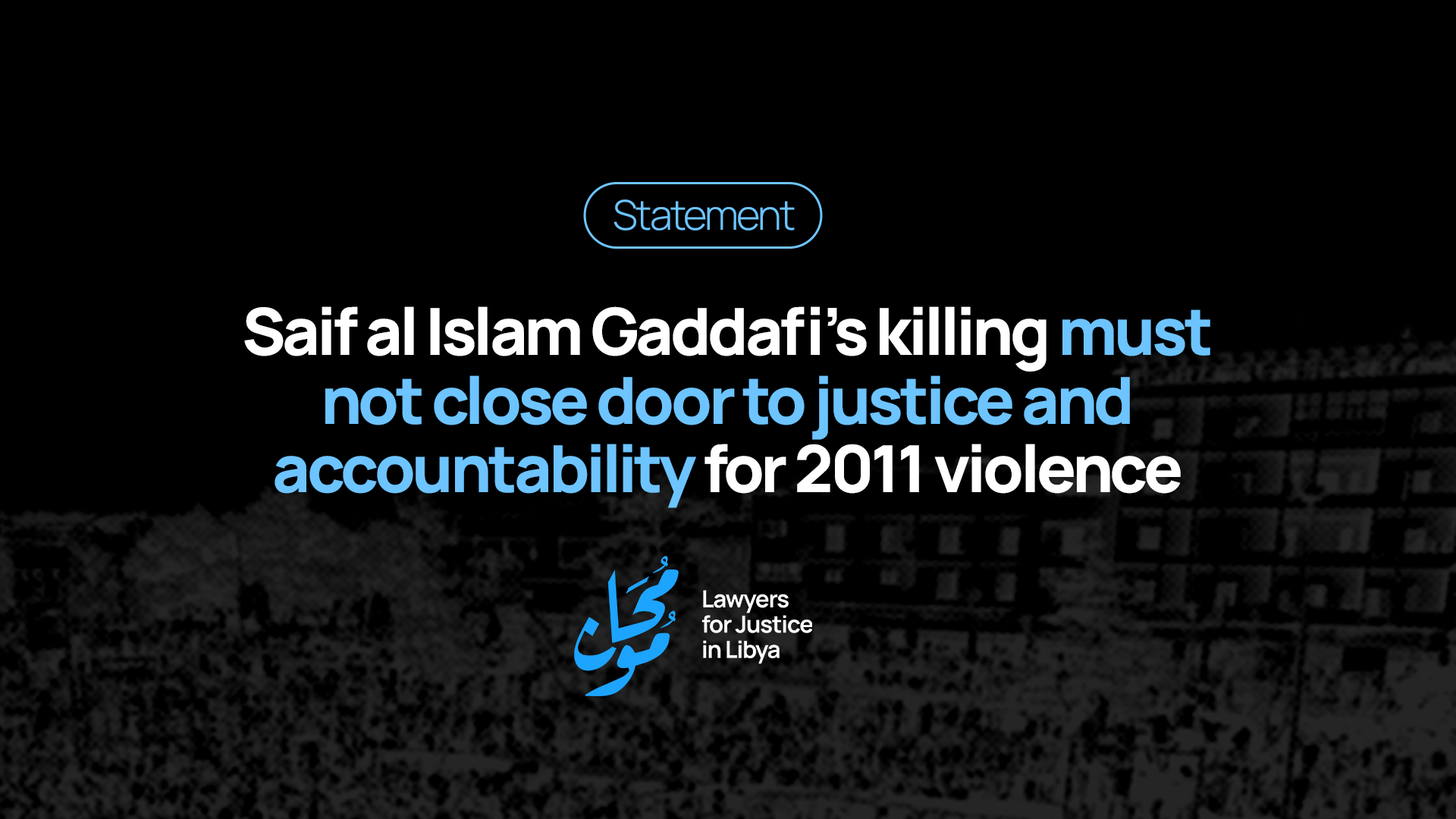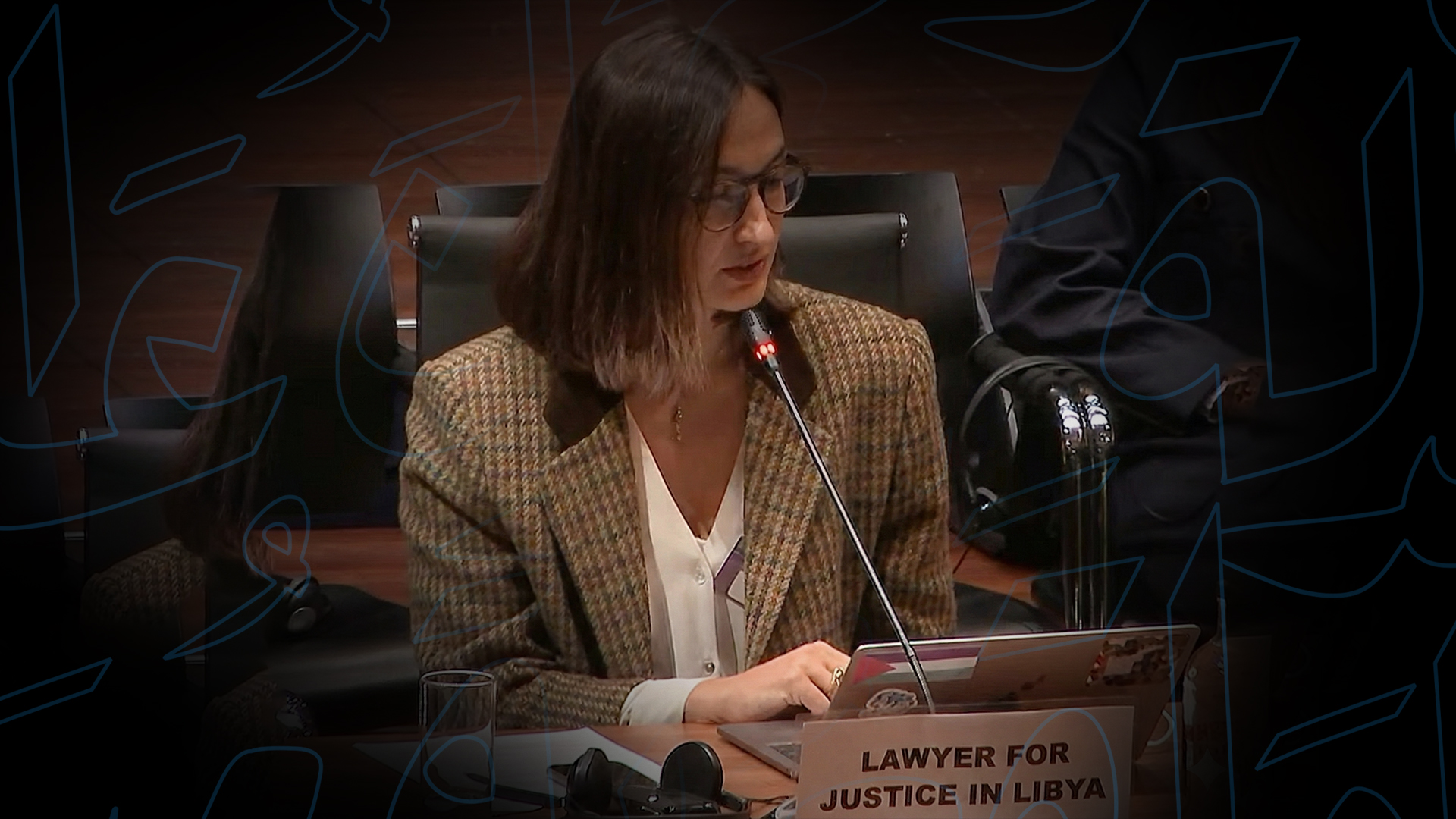LFJL, as part of the Coalition of Libyan Human Rights Organisations, launches UPRna and Calls on Civil Society to Take Part
Lawyers for Justice in Libya (LFJL) is proud to announce the launch of UPRna!
UPRna is an initiative led by LFJL, which aims to provide a new platform for civil society to engage in the Universal Periodic Review (UPR) process. Established in 2006, the UPR is a mechanism by the UN Human Rights Council (HRC) which reviews the human rights records of all 193 UN Member States every four years and a half. It is a state-driven process, which provides the opportunity for each state to declare what actions it has taken to improve the human rights situation in its country and how it has fulfilled its human rights obligations. It also allows other states to present recommendations to the state under review to improve its human rights records. The UPR also provides the unique opportunity for civil society to engage in the process. Currently, no other universal mechanism of this kind exists. UPRna (which in Arabic means “Our UPR”) aims to foster engagement among Libyan civil society in this important mechanism.
Libya’s second UPR is scheduled for 13 May 2015. This comes at a pivotal time in Libya’s transition and is an excellent opportunity to address many of the current human rights concerns affecting the country. It also marks the first opportunity for Libya’s non-governmental organisations (NGOs) to engage in the process, as they were prevented from interacting in such initiatives by the previous regime. In spite of these challenges, there has been no true attempt by the Libyan state to encourage civil society to engage in the UPR or to develop the capacity of civil society to engage with international human rights bodies despite its obligation to do so under the UPR mechanism.
Without greater understanding of international human rights mechanisms from national stakeholders, there is a real risk that Libyan civil society will increasingly become alienated from the international human rights discussion. This means that processes like the UPR may feel distant, irrelevant and ineffective at soliciting change on the ground. It is therefore vital to establish an initiative that helps encourage the collaborative involvement of civil society in the UPR process and international mechanisms more generally, if such mechanisms are to be effective at promoting human rights best practices and awareness in Libya.
To address this reality, UPRna was created. As a first step, the Coalition of Libyan Human Rights Organisations (the Coalition) was formed in June 2014. The Coalition is made up of six Libyan NGOs, including LFJL, the Women are Coming Movement, Mercy Association for Charitable and Humanitarian Aid (Alrahma), the National Libyan Organisation for the Development of People with Disabilities, the Libyan Association for Tebu Culture and the Libyan Center for Freedom of Press. The Coalition works on a variety of human rights issues including freedom of expression, women’s rights, minority rights, the rights of internally displaced persons, disability rights, and torture. Together with the members of the Coalition, we developed an understanding of the UPR and the role NGOs play in the process after taking part in extensive training workshops on this mechanism. We have already conducted several activities around Libya’s UPR including reporting on Libya’s human rights situation, providing recommendations and conducting direct advocacy with country missions in Geneva. The Coalition will continue its activities around Libya’s UPR over the next months which include advocating for strong recommendations to be accepted by the Libyan state and monitor their implementation. We hope that the membership of this Coalition will continue to grow in order to encourage, support, and expand Libyan civil society’s engagement with international mechanisms.
To increase awareness around the UPR process, and as part of our work with the other members of the Coalition on the UPR, LFJL launches today the UPRna webpage. It is an online platform for Libyan NGOs to interact with the UPR process. The webpage will not only be an informative platform but also an interactive one. The webpage will include information on the UPR process, the role of civil society in the process, example reports and recommendations, key dates, best practices for different reporting purposes and methods of advocacy. Also, NGOs will be able to share their experiences interacting with the UPR with short reflection pieces highlighting obstacles faced and the lessons learnt. The Coalition’s activities will also be a key feature on the webpage. We hope that these experience-sharing sections will help build the capacity of other NGOs not familiar with the UPR mechanism and help the work of the Coalition to be more effective.
As Libya’s UPR review is taking place in the coming days, the link to watch the review online will be made available on the webpage for everyone to access. It will be vital that civil society is engaged in monitoring the implementation of the UPR recommendations Libya accepts. Monitoring should not only be limited to the review stage but we should continue monitoring Libya’s implementation status until its next UPR review. The Coalition will use the UPRna webpage to share monitoring briefings and monitoring best practices. We hope that civil society will also engage in monitoring Libya’s human rights obligations and use the UPRna webpage to share observations. “We envision the UPRna webpage to become a key platform for Libyan NGOs to collaborate on future advocacy, outreach and monitoring efforts in relation to the UPR, and in the long-term, as a steppingstone to interact with other international mechanisms,” expressed LFJL Director Elham Saudi.
To find out more about UPRna, please visit uprna.ly. We welcome any questions or ideas you might have by sending an email to uprna@libyanjustice.org.





